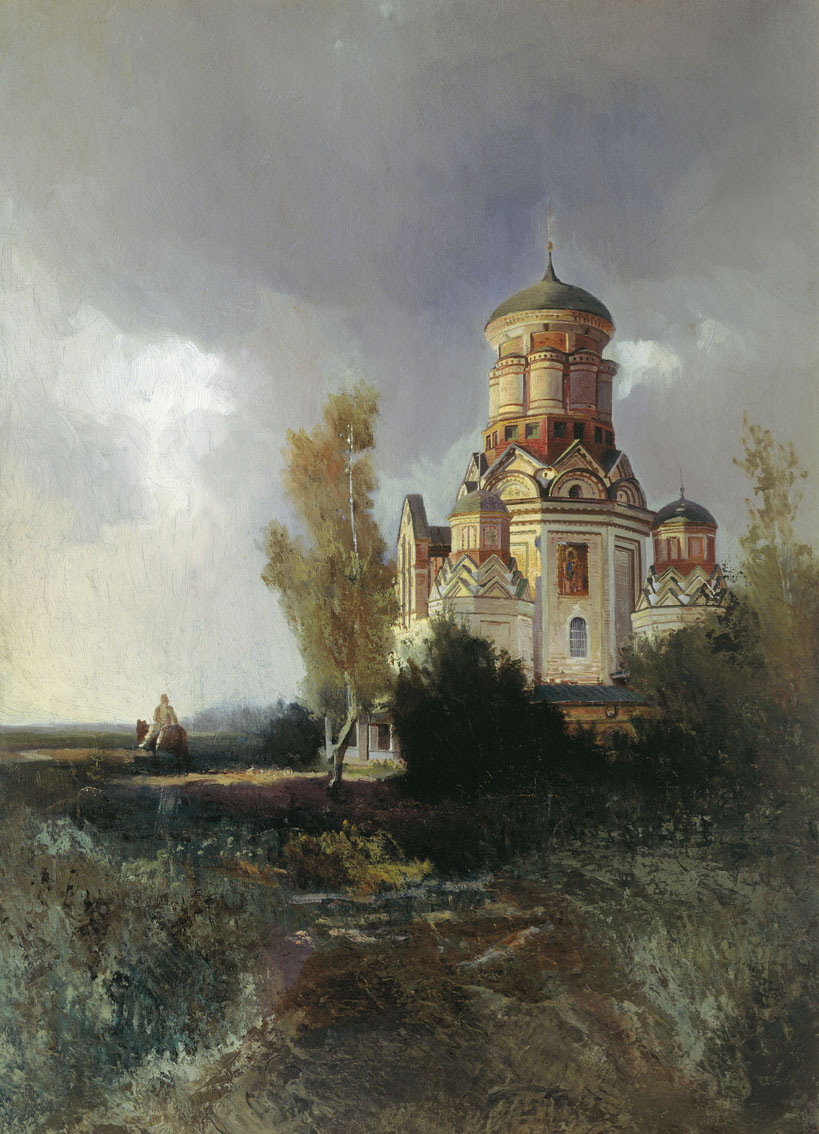Kedrov, Otche Nash

Traveling through Russia with Professor Carol took me to quite a few Orthodox churches and monasteries in Moscow, St. Petersburg, and along the Volga River. We traveled on our own much of the time, but I also tagged along on some of Carol’s Smithsonian tours and port visits when she was speaking on cruise ships. When your tour group shows up at a religious or historical site, you will often be treated to a short concert by a vocal ensemble singing Orthodox chant and Russian folk songs.
These ensembles usually consist of 4 to 6 young men, dressed alike, standing in rigid poses, and singing like true professionals. There seems to be an endless supply of such groups, and you have to wonder how Russia manages to train so many good voices. The concerts include what you might expect for tourists: quintessentially Russian repertoire and, almost always, Kedrov’s Otche Nash (Our Father, The Lord’s Prayer).
Nikolay Kedrov (1871-1940) composed primarily liturgical music for the Orthodox church. He was born in St. Petersburg and trained at the conservatory there. In 1922, he emigrated first to Berlin and soon after to Paris where there was a strong and sizeable Russian emigre community.
You are much less likely to hear this chant in places like Bowie, Texas. But during our ten-year stint on the ranch, our local “OK Chorale” (consisting of Carol and me, the local optometrist, veterinarian, police dispatcher, county attorney, and computer guy) sang Otche Nash (in English) to appreciative audiences at local fairs, Baptist churches, and American Legion halls.
None of us are likely to be visiting Russia again anytime soon, but Professor Carol can give you a virtual tour in her Imperial Russia course and much more detailed explanation of why Orthodox chant is so essential to Russian culture.



